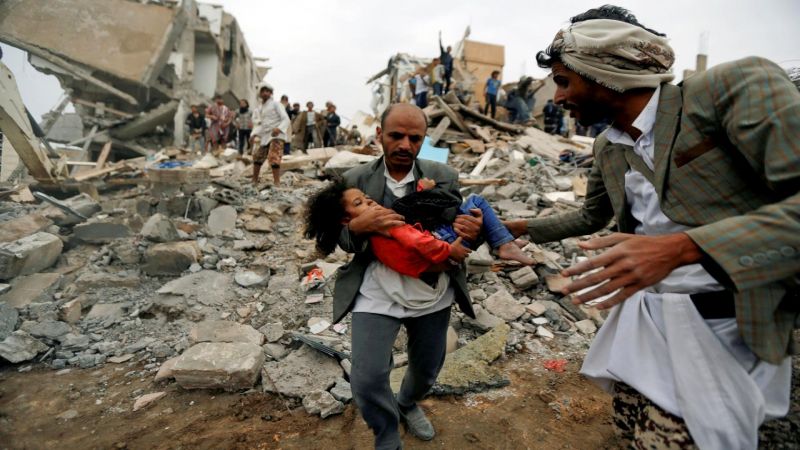
Local Editor
With three quarters of Yemen’s population in need of international assistance and hostilities on the rise, senior officials briefing the Security Council Tuesday urged parties to the conflict to promptly resume peace talks or risk further escalating the world’s worst humanitarian emergency.
“A negotiated political settlement through inclusive intra-Yemeni dialogue is the only way to end the Yemeni conflict and address the ongoing humanitarian crisis,” said Martin Griffiths, Special Envoy of the Secretary-General for Yemen, in his first substantive briefing since taking up that role on 11 March. Noting that he planned to present to the Council a framework for negotiations within the next two months, he described initial meetings with former Yemeni President Abd Rabbu Mansour Hadi and his resigned regime — as well with as the leadership of the Ansarullah movement — as encouraging, with both parties demonstrating constructive attitudes.
“Peace becomes possible when we see the good in our foes, even though we can see clearly the cruelties of war,” he stressed, adding that the people of Yemen were in desperate need of signs of hope that the war would end soon. While he had yet to visit south Yemen, where the conflict had brought about major changes and made long-standing frustrations more prominent, he underlined a need to listen to their voices and ensure their inclusion in political arrangements to end the war. The first step must now be to stop the fighting.
Agreeing, Mark Lowcock, Under-Secretary-General for Humanitarian Affairs and Emergency Relief Coordinator, briefed the Council on recent developments, emphasizing that the situation in Yemen remained the world’s worst humanitarian crisis, with more than 22 million people requiring some form of help. Thanking Member States for pledging more than $2 billion for Yemen at a recent funding conference, he called on all parties to the conflict to take practical steps to protect civilians and facilitate humanitarian access. While United Nations humanitarian flights and vessels were moving regularly, delays in importing commercial goods and subsequent shortages had sharply driven up prices, forcing hundreds of thousands of destitute families to turn to aid to survive.
Exacerbating the situation was a risk of another major outbreak of cholera, he said, also voicing concern that Sana’a’s airport remained closed to commercial traffic and that bureaucracy had caused delays in relief operations. Meanwhile, the impact of air strikes, shelling and fighting on the civilian population was deeply worrying, and some 3 million women and girls were now at risk of sexual and gender-based violence.
As Council members took the floor, some delegates strongly condemned attacks by all parties on populated areas and civilian infrastructure. Many expressed support for efforts to keep Yemen’s ports open, including in Hodeida and at the Sana’a airport, describing them as a lifeline for the Yemeni people.
Joining other speakers in emphasizing that there could be no military or humanitarian solution to the Yemeni crisis, only a political one, Kuwait’s delegate said it was unacceptable to put personal interests and political ambitions over the interests of an entire people. He said an ideal solution should focus on Yemen’s unity and territorial sovereignty and respect for its people.
“This is a solvable conflict,” said the United Kingdom’s representative, adding that the “absolutely shocking” humanitarian scenario outlined by Mr. Lowcock should serve to spur the Council to action. Warning of the conflict’s impact on regional stability, especially risks faced by Saudi Arabia, she said all parties, including Iran, must comply with the Council’s arms embargo including the provisions of resolution 2216 (2015).
Among those delegates voicing grave concern over Yemen’s worsening humanitarian situation was Bolivia’s representative, who also pointed out that the fighting had led to the displacement of some 85,000 people since December 2017, bringing the current total to more than 2 million. Calling on Council members to remain united against all indiscriminate attacks against civilians, including air strikes, he called on all parties to ensure the continued operation of Yemen’s air and sea ports and the roads leading to them and to abandon any preconditions for the resumption of negotiations.
Also speaking were the representatives of Sweden, France, Netherlands, Kazakhstan, Poland, China, Côte d’Ivoire, Ethiopia, Equatorial Guinea, Russian Federation and Peru.
Source: News Agencies, Edited by Website Team